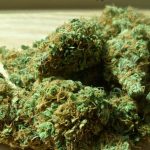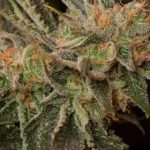Cannabis Gummy Bears Available in Australia

Cannabis edibles are making their way onto the Australian drug scene, and they make it easier for users to avoid detection as they can be chewed at any time, anywhere.
Edible cannabis-derived gummies which may contain both THC or CBD oil in them, look like gummy bear lollies or soft chewy multivitamins. And because of the way they look, there are concerns the chewables could be mistaken by children as harmless sweets.
In the US, cannabis edibles are widely available where the sale and possession of marijuana is legal. They’re described as the ‘drug you can do at work’ because they’re less obvious to consume than traditional cannabis, and the THC component offers a mellow long-term high that is said to help people feel less stressed and anxious.
Party scene and workplaces
The edibles have hit the party scene and made their way into workplaces in Sydney, and some gummies contain 25mg of CBD – a drug said to curb nervousness and stress, promote sleep and reduce muscular inflammation and pain, which is why they are also used among cancer patients and to treat other conditions.
In Australia, imported medicinal cannabis products can be used if prescribed by a doctor. However, patients needing access to medicinal cannabis are finding that bureaucratic delays and high costs are often making access to the drug very difficult.
NSW Police say they are aware of a variety of cannabis edibles, but also warn that they are illegal in New South Wales.
Stoned workers
Conservative commentators in US states where recreational cannabis is legal have raised concerns about workers being high during working hours, given the ease by which cannabis edibles can pass as ordinary snacks.
For some occupations there is, and always will be, a zero-tolerance for alcohol and drugs. However for others, the question remains exactly how employers will test for, and police drug affected workers, particularly when THC stays in the body for so long after it has been taken.
US authorities are also working through regulations that would protect people from accidental ingestion. There are also unanswered questions around how the digested product affects impairment differently from marijuana when it is smoked in a pipe or as a joint.
Experts say that ironing out the full implications of legalising marijuana in all its forms is likely to take about a decade, and that initially, policy shortcomings will be inevitable – it’s likely that many issues that arise will end up being tested by the courts.
Canada is set to finalise its legal framework for legalising marijuana later this year. The country is optimistic about following in the footsteps of US states which have reaped enormous economic benefits from legalisation, which reducing the harms associated with prohibition.
In Australia
As more and more jurisdictions around the world legalise the recreational use of cannabis, leaders of the major political parties in Australia remain steadfast in their opposition to the move.
However, Greens Leader Richard Di Natale announced last month that his party will formally adopt a policy of legalisation nationwide. The Greens’ propose to regulate and tax cannabis with a system that operates in much the same way as the alcohol and tobacco industries.
The Greens say that a legalised recreational cannabis market would undermine organised crime groups that benefit from prohibition, as well as alleviate the burden it places on the criminal justice system.







